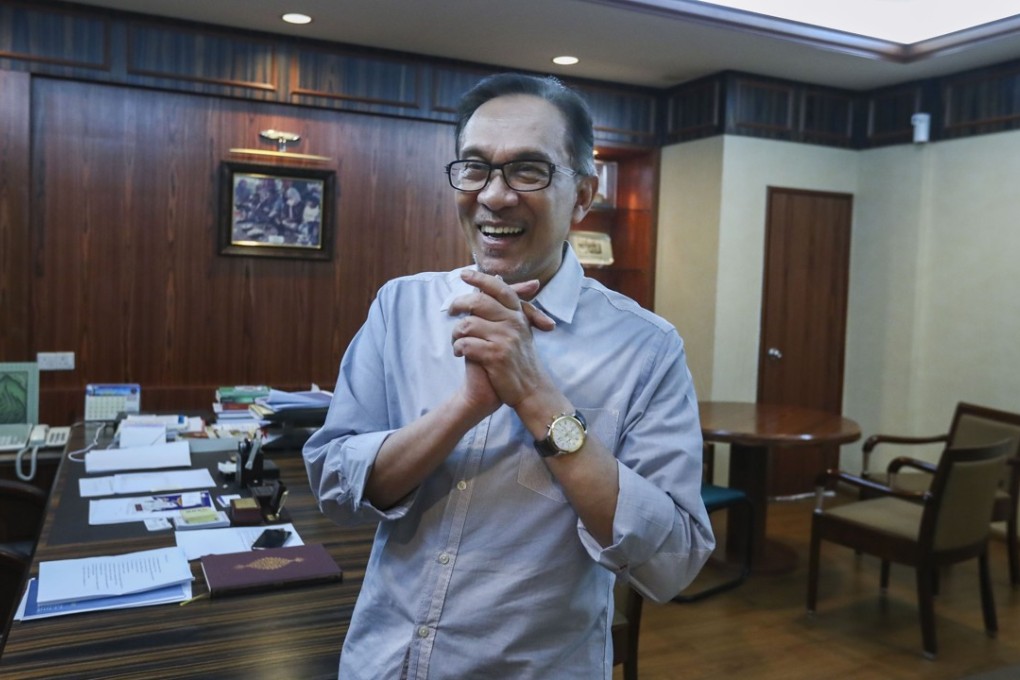Exclusive | Anwar Ibrahim Q&A: Malaysian democracy icon on prison, dissent and the cautious approach to race
He walked from jail to the corridors of power. Now Malaysians hope he can lead the country on a path of freedom

It is Friday afternoon and a man in a white linen shirt, returning from prayers at the mosque, enters the third-floor office of the Pakatan Harapan, his hands clasped near his chest as he whispers, “Sorry, sorry, I have to change from my slippers first.” Everyone glances at his feet as he glides softly past to a side room to put on his office shoes. Those feet have walked the corridors of power as well as the confines of a tiny prison cell and may well now lead Malaysia on a path of freedom. Anwar Ibrahim, the former deputy prime minister who spent cumulatively more than a decade in jail, is the de facto leader of the new ruling coalition of Malaysia.
According to a power-sharing arrangement made before the Pakatan Harapan coalition pulled off its stunning victory in the May 9 elections when it ousted the ruling Umno party that had been in power for more than six decades, Anwar will take over from Mahathir Mohamad in two years.
In the interlude, he will spend time with family and go on the lecture circuit. Next week, he will travel to London and then Turkey to give lectures and a visit to Stanford University in the fall is on the cards.
Anwar was a firebrand student leader who led attacks against Umno in his youth but later joined the Malay-based party and rose quickly to become a top leader. He was the deputy prime minister to Mahathir when he was summarily sacked at the height of the Asian financial crisis in 1998. He went on to launch a Reformasi movement for change, fighting against Mahathir.
Fast forward to the recent election and it was an alliance between Mahathir and Anwar that formed the centrepiece of the opposition coalition. It is a partnership people are still trying to grasp the significance of, not least, Anwar himself. He says, “Until now, I’m thinking it, are you sure I did it?”
In his younger days, his fiery oratory could mesmerise thousands. Anwar at 70 is gentle, exuding effortless charm. The force of his conviction remains unmistakable and it is understandable why, even when he was in prison and absent from the political stage, he remained the opposition’s talisman.